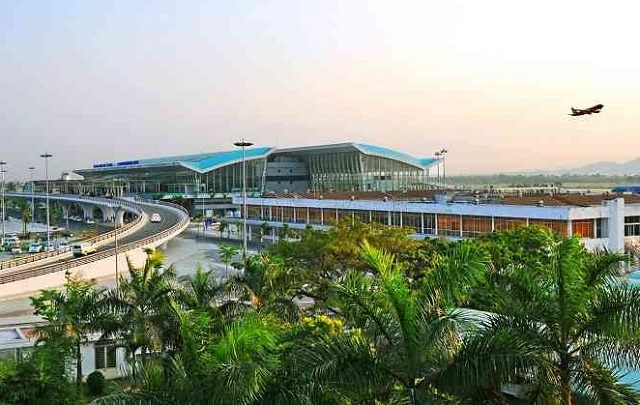 Economy
Economy


|
| The Đà Nẵng International Airport. — Photo kinhtedothi.vn |
ĐÀ NẴNG — Đà Nẵng will build a new terminal, T3, at its international airport with total investment of VNĐ9 trillion (US$391 million), increasing the airport’s capacity to 28 million passengers and 200,000 tonnes of cargo by 2030.
Deputy general director of the Airports Corporation of Việt Nam (ACV), Lê Xuân Tùng told Việt Nam News the new terminal was designed to handle 18 million tourists per year and 100,000 tonnes cargo.
The T3 terminal alongside two already existing ones – T1 and T2 – will help Việt Nam’s third largest airport ease congestion in the near future, while promoting connections in trade, investment and tourism in key central economic zones among Huế-Đà Nẵng-Quảng Nam and Quảng Ngãi.
Tùng said the ACV has urged the ministries of transport and finance and relevant agencies to complete the final procedures for the project.
Tùng said Đà Nẵng International Airport is a key destination for the development of trade, investment and tourism in the central and central Highlands region.
“The airport hosts 23 flights each day and grows 30 per cent annually. Meanwhile, the development of airlines including VietJet Air, Jetstar Pacific and Bamboo Airways and tourism property in the city has strongly lured foreign investment in recent years,” Tùng said.
“We have asked the Ministry of Transport to approve the detailed plan for construction of a new terminal project.”
In 2017, the city launched the T2 terminal to serve the Asia-Pacific Economic Co-operation (APEC) summit, with a design capacity of 13 million passengers per year from 2020, but it already became overloaded with 13.3 million passengers in 2018.
The airport authorities and Chiang Mai International Airport have been promoting more direct flights connecting destinations in Thailand and world heritage sites in central Việt Nam including Sơn Đoòng Cave, Phong Nha-Kẻ Bàng National Park in Quảng Bình; UNESCO-recognised world heritage sites; Hội An ancient town and Mỹ Sơn Sanctuary in Quảng Nam.
The city’s airport is now the third largest airport in Việt Nam, after Nội Bài International Airport in Hà Nội and Tân Sơn Nhất in the southern economic hub of HCM City. It is an important gateway to the central and Central Highlands region and the East-West Economic Corridors connecting Thailand, Myanmar, Laos and Việt Nam. — VNS




